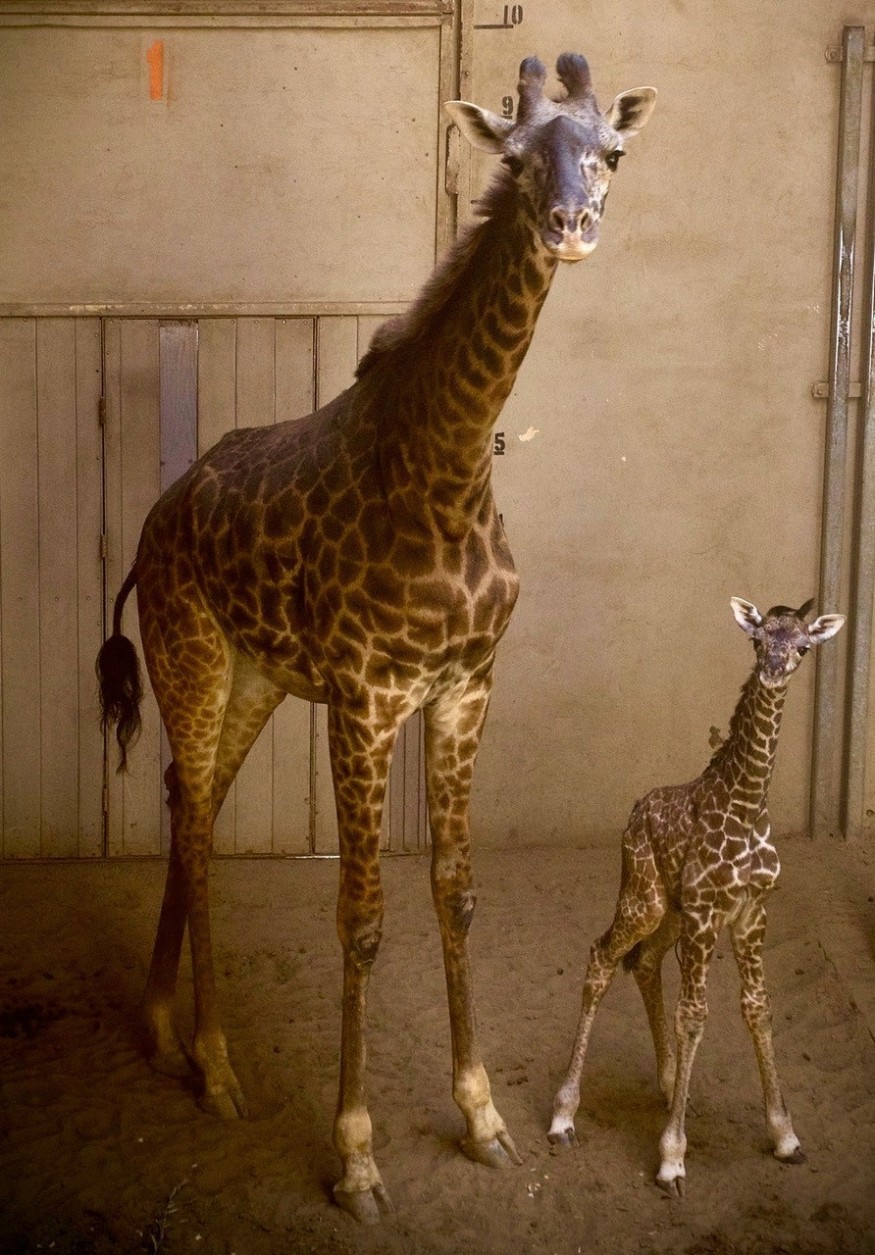[IN PHOTOS] Good News! Santa Barbara Zoo Welcomes a New Born Giraffe

A Masai giraffe gave birth to her first male calf that measures 6 feet tall and weighs in at 125.5 pounds at the Santa Barabara Zoo on March 27 according to a recently published article.
Masai giraffes are listed as one of the endangered species in the world because of their declining number in recent decades. It is no wonder why people at the Santa Barbara Zoo were very happy after a Masai giraffe gave birth on Mar. 27.
In the official Twitter account of the Santa Barbara Zoo, they wrote "BABY ALERT! We've got a giraffe calf! Adia gave birth at 12:26 PM this afternoon in the Zoo's giraffe barn. Vet staff report mom and baby appear to be healthy and doing well! Do you think it's a boy or a girl? Stay tuned for more details on our newest arrival!"
In another article, it was confirmed that the five-year-old Masai giraffe named Adia gave birth at around 12:26 pm. The calf was named "Twiga" which means giraffe in Swahili.
Dr. Julie Barnes, vice president of animal care and health at the zoo, said: "It's always a joy to see a new life begin, but we think it's especially meaningful right now as a beacon of hope and good news during these challenging times of the COVID-19 pandemic."
He also added, "Masai giraffes are listed as endangered due to the significant decline of this species in the wild in recent decades. The population under human care here in the U.S. is relatively small, and the Species Survival Plan manages the population to ensure that genetic diversity is maintained so that the population thrives, and each giraffe born at the Zoo is very important to this population and conservation of this species."
The birth of the Masai giraffe is so special in many ways. Twiga is very emblematic for the zoo because it just shows that the life cycle must go on amid the COVID-19 pandemic. On the other hand, it is also a reminder that amid the global health pandemic this is the best time to propagate animals who are listed as endangered species.
View this post on InstagramA post shared by Santa Barbara Zoo (@santabarbarazoo) on Mar 27, 2020 at 3:36pm PDT
Moreover, it was found out that Twiga is the eight calf for father Michael. The zoo said that Michael is the most genetically important male Masai giraffe in North America. He is also one of the five giraffes now in the zoo.
Meanwhile, the low number of Masai giraffes at the zoo clearly manifests that they are indeed part of the endangered species. To address their declining number, another giraffe is supposed to be brought to the Sacramento Zoo as part of the AZA breeding program.
However, the travel was rescheduled because of the current weather condition and the COVID-19. Even though it is not yet proven that there is a possibility of human to the animal transmission of the virus, it seems that the zoo wants to protect their animals since it was recently reported that are still lots of things that are yet to be discovered about the deadly and infectious virus.
Masai giraffe is sometimes called as Kilimanjaro giraffe. They are natives from East Africa and they were once the largest subspecies of giraffe. At present, there are still a few of them that can be seen in Kenya and Tanzania.
However, the International Union for Conservation of Nature announced in July 2019 that Masai giraffes are listed as endangered species. There are two reasons why their number declined in the previous decade and these are poaching and the changes in land use.
Meantime, Santa Barbara zoo is temporarily closed because of the COVID-19 pandemic. But you can be updated about the newly born Masai giraffes and other animals by visiting its official social media page.
Read related article: COVID-19 Is Mutating, Is It More Dangerous?
Subscribe to Latin Post!
Sign up for our free newsletter for the Latest coverage!

















